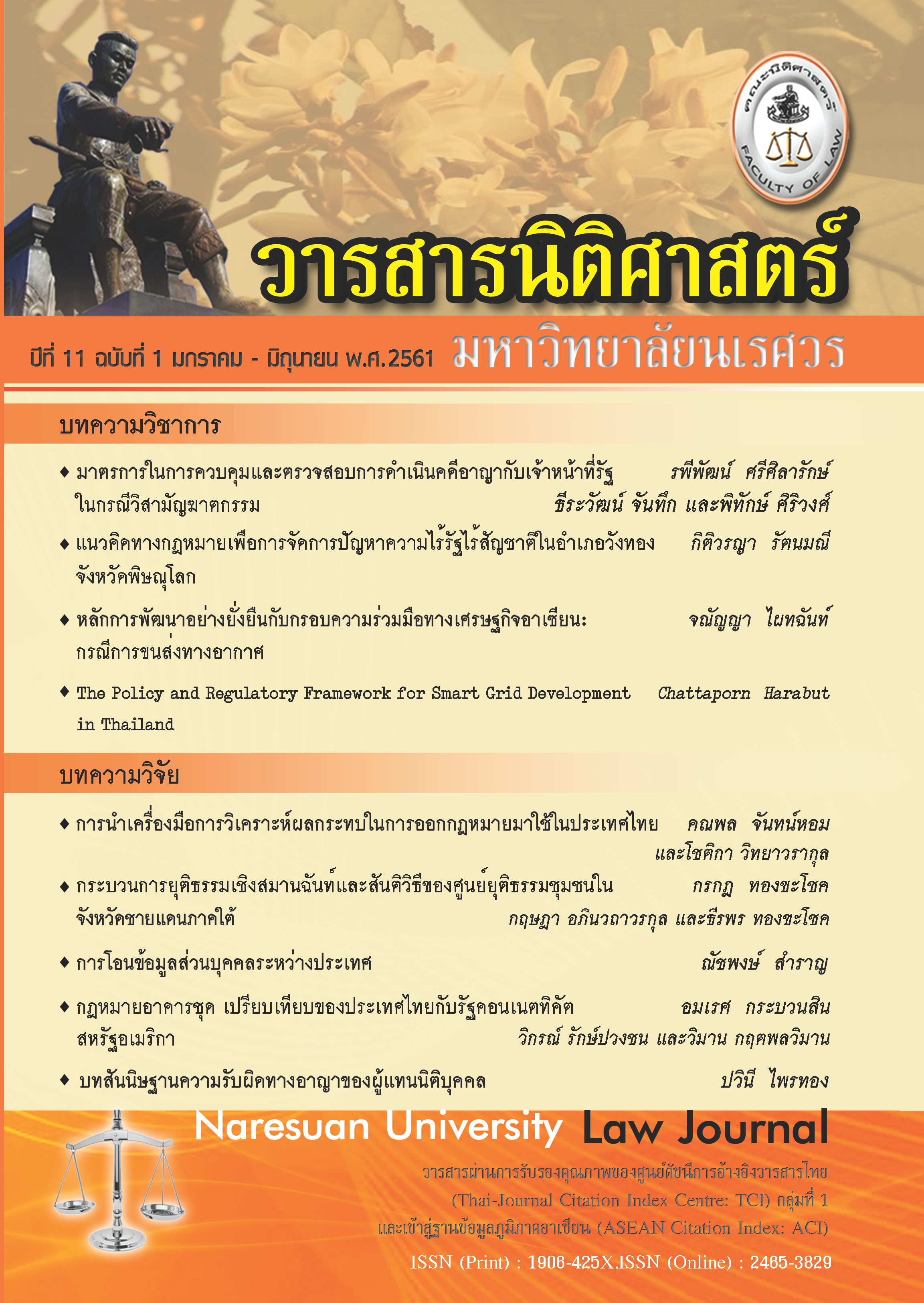Restorative Justice and Peaceful Means at Community Justice Center in the Southern Border Provinces
Main Article Content
Abstract
This research has studied the community justice center models and its public participation in the Southern border provinces, to study the performance of the community justice networks in terms of coordinating between the communities. The methodology was qualitative which the data was collected from the various resources. It started by reviewing the relevant documents, conducting in-depth interviews with the provincial justice center staffs, the chairpersons of the community justice centers in the Southern border provinces. The research was afterward exercised by focus groups of the committee of the community justice centers and the community justice networks, as well as the participant observations in four excellence award winning community justice centers and four non-awarded community justice centers.
The result of the research showed that the community justice centers in the Southern border provinces were created by local people in the community. They aimed to participate with the government sector in order to establish fairness in their communities. The community justice centers had the missions to give advice, receive the complaints, mediate, guard the community, rehabilitate offenders, notify the public, collaborate, inform clues, engage with community activities and so on. Each committee of the community justice center was established by volunteers in the community who are greatly aware of the unfairness that the community members are facing.
Besides the community justice center committee being on site to work with the residents to achieve recognition and confidence on their individual justice potential, The success of the community justice centers in the Southern border provinces was significantly relies on. the volunteer works performed by the community justice centers. Additionally, there is no existing law specifying duties and authorities for the community justice networks to resolve disputes.
Article Details
References
Hahn, Robert W. Reviving Regulatory Reform: A Global Perspective. Cambridge: Cambridge University Press and AEI Press, forthcoming, 1998.
Jutarat Eua-Amnuay. Justice and Alternative Justice Systems: Sociological Analysis. Bangkok: Chulalongkorn University, 2008. [In Thai]
Jutarat Eua-Amnuay. Restorative Justice: The Return of “Power” to Victims of Crime and Community.Bangkok: The Thailand Research Fund, 2004. [In Thai]
Kanit Na Nakorn. (1985). “Thai Criminal Procedure: Principles of Irrelevant Laws and Practices.” Thammasart Law Journal 15, no.3 (1985): 15-17. [In Thai]
Kary, David R., and Todd R. Clean. “Community Justice: A Conceptual Framework.” In Boundary changes in criminal justice organizations, edited by Charles M. Friel. Criminal Justice 2000, Vol. 2, 323-368. Washington, DC: United States Department of Justice, Office of Justice Programs, National Institute of Justice, 2000.
Kittipong Kittayarak, eds.Community Justice: The Role of Community Justice Administration for Communities. Bangkok: The Thailand Research Fund, 2007. [In Thai]
Kurki Leena. Racial Disparity Initiative: Collateral Effects Study. Minneapolis, Minn.: Council on Crime and Justice, 2000.
Robert W. Hahn, Reviving Regulatory Reform: A Global Perspective. Cambridge: Cambridge University Press and AEI Press, forthcoming, 1998.
Umbreit, Mark S., and Marilyn Peterson Amour. “Restorative Justice and Dialogue: Impact, Opportunities, and Challenges in the Global Community.” Washington University Journal of Law & Policy 36 (2011): 65-89.
Wachtel, Ted. “Restorative Justice in Everyday Life: Beyond the Formal Ritual.” Paper presented at Reshaping Australian Institutions Conference: Restorative Justice and Civil Society, The Australian National, University, Canberra, Australia, February, 1999.

